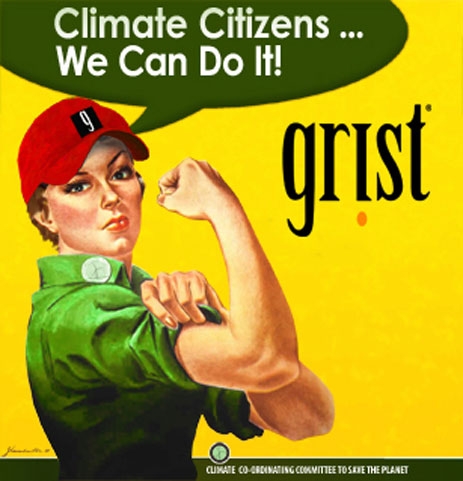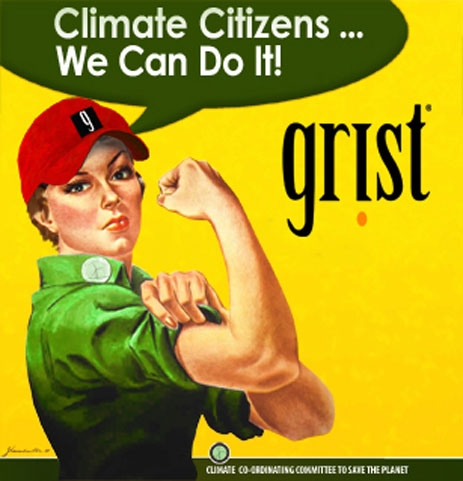Send your question to Umbra!
Q. Dear Umbra,
What does a carbon offset do today for the planet? It seems to me like these vehicles are more for our guilty conscience than for real change. What do you think?
Ingrid G.
Chicago, Ill.
A. Dearest Ingrid,
 Get involved in the climate fight — become a Climate Citizen today.I am about to leave carbon offsets behind, but I want to use your letter to do two things: clarify a comment I made in Monday’s column, then step up on my cap-and-trade soapbox.
Get involved in the climate fight — become a Climate Citizen today.I am about to leave carbon offsets behind, but I want to use your letter to do two things: clarify a comment I made in Monday’s column, then step up on my cap-and-trade soapbox.
First: I got a little too extreme on Monday what with averring that voluntary personal offsets did not “negate” our actual emissions. It is true that they don’t magically erase the nasties you emit. However, if you have chosen a solid, verified provider and your money is going toward projects that would not otherwise exist (again, that’s called “additionality”), and the offsetter is accurately counting the tons of carbon removed by the project … if all those terms are met, the offset does keep an amount of carbon equivalent to your real emissions out of the atmosphere.
However! As I’ve said before, the voluntary offset market is frustrating because it has no overarching entity determining the quality of proffered products. Hence it seems suspicious, to you and to others. For this reason and many more, we need a national cap and trade program.
And that brings us to my second — but actually primary — purpose today: to emphasize that if we get a decent national cap-and-trade program going, all this voluntary offset stuff will be less urgent. The voluntary system, which is a passel of organizations patching together divergent methods, does not equal a well-planned national scheme with a target, a proven methodology, and rigorous accounting. It’s great that individuals have an interest in creating and buying into small-scale offset projects. But it’ll be even better when we have a national system that forces industry and hence consumers to internalize the cost of carbon.
The national system will not be perfect. But we will all be working together to reduce our global footprint, and reducing the chance that our footprint will be wiped out by giant waves from rising seas. It won’t just be those of us with a guilty conscience who are trying to build an alternative energy system.
We need a decent cap-and-trade bill, and our politicians need to know that we want one and are willing to be part of the U.S. Stop Global Warming In Its Tracks Team. Contact your elected representatives and let them know how you feel — visit our Climate Citizens section for tips on getting started.
Repetitively,
Umbra



